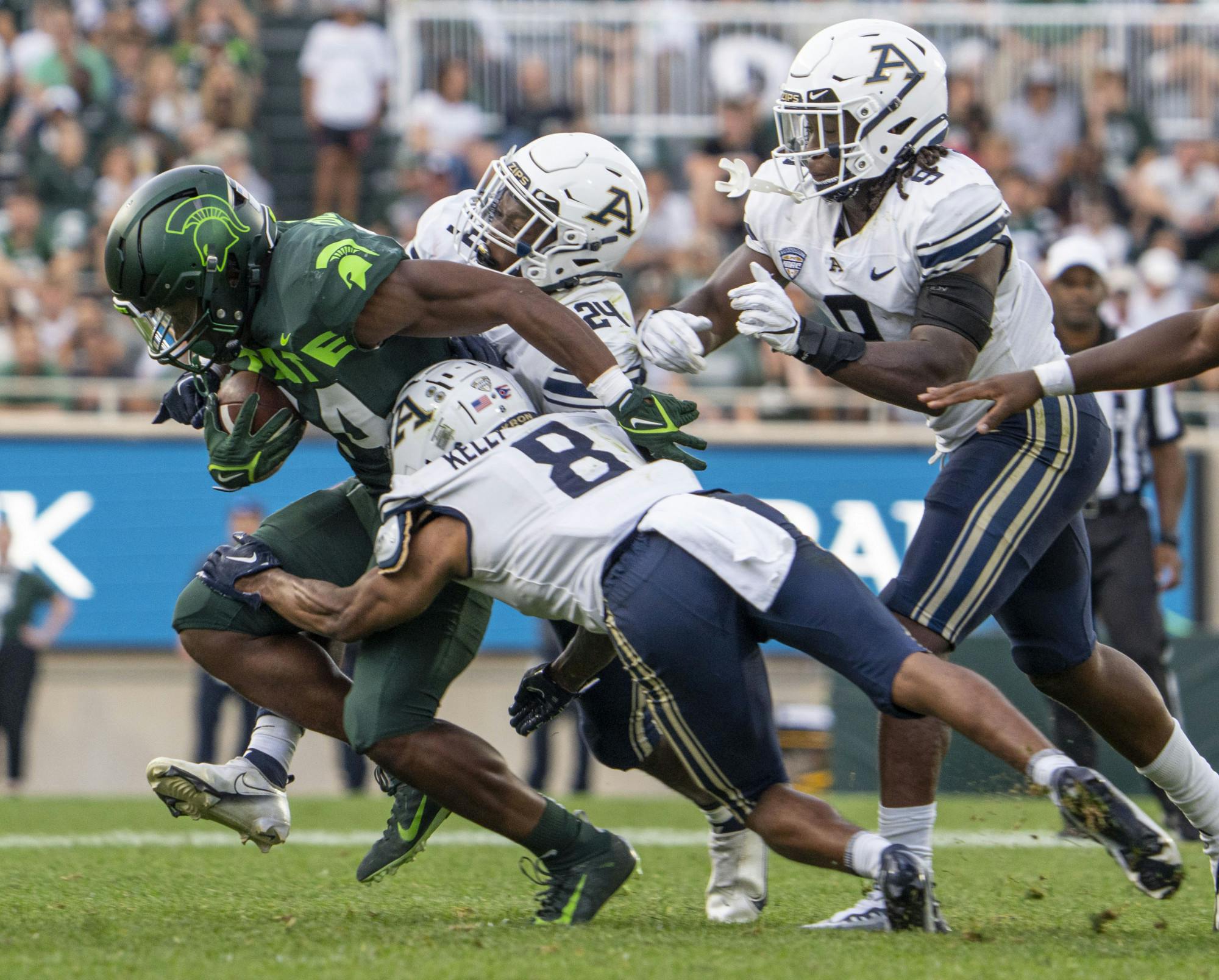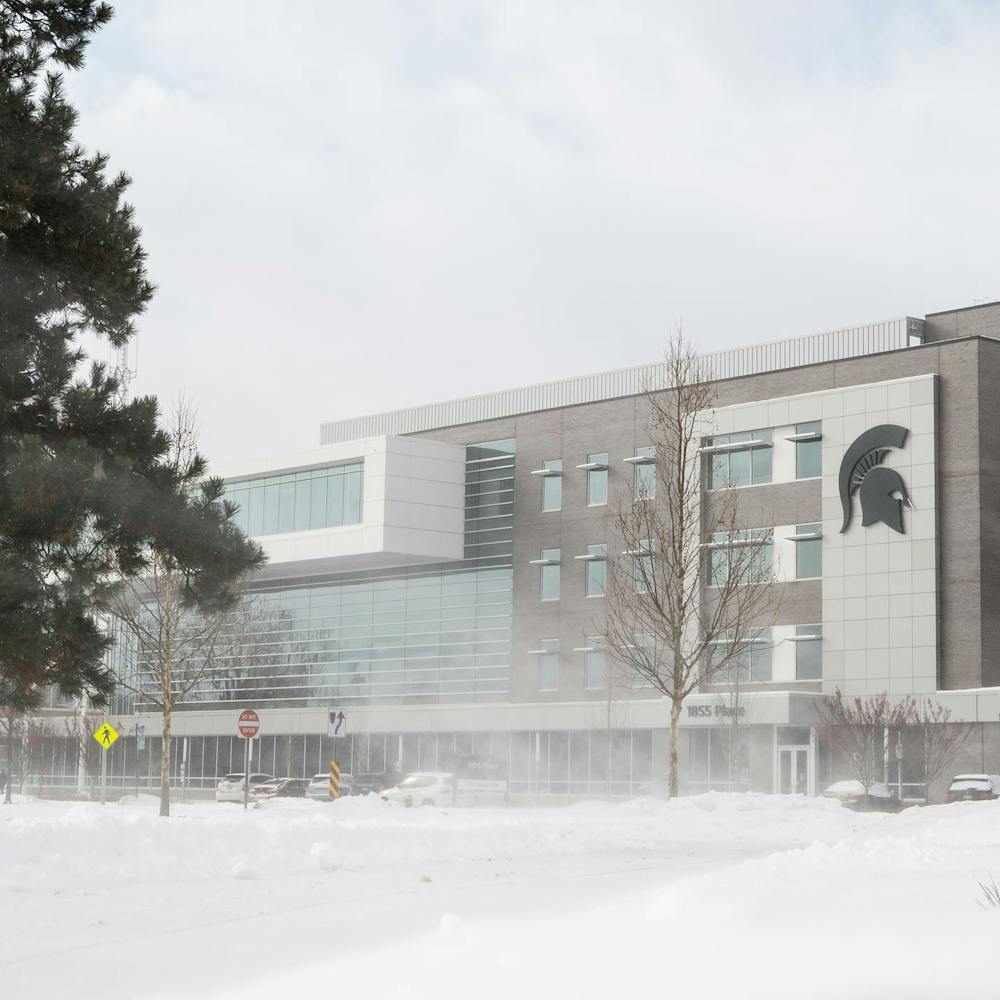As Michigan State football looks ahead to Washington, the team is focusing on off-the-field preparation, just as much as on-field. Head Coach Mel Tucker revealed his team has consulted with specialists to account for the time change.
Redshirt junior quarterback Payton Thorne said Tuesday that Tucker is only allowing the team to sleep for half an hour on the plane, and has advised them to go to bed an hour earlier this week to prepare for the trip.
Seattle is three hours behind Lansing, so the 4:30 p.m. local kickoff will feel more like 7:30 p.m. for the Spartans, who usually play their games in the Eastern and Central time zones. Travel between time zones can throw off the body’s sleep-wake cycle, a circadian rhythm.
Hanne Hoffmann, an assistant professor of animal science at MSU who researches circadian rhythms, explained what they are in layman terms.
“The circadian rhythms are like rhythms that repeat every 24 hours, so the most obvious circadian rhythms are just like your sleep-wake cycle,” Hoffmann said. “It happens every 24 hours, usually when you go to bed around the same time, and then you wake up about eight, nine hours later.”
When people travel across time zones and “jet lag” occurs, the circadian rhythms, such as the sleep-wake cycle, have not yet adjusted to this change.
“What happens when you have jet lag is that you physically moved many time zones and the clocks in your body, they didn't move that fast,” Hoffmann said. “So each cell of your body can actually keep track of time, but it's matched to the time of day, so what happens is that these clocks in your body take approximately one day to shift one hour.”
Although the Spartans will have to deal with possible jet lag, according to Hoffmann, they will still be in the peak muscle performance time zone even though they’re playing on the West Coast.
“If you live in Lansing in our time zone, your best physical performance is going to be in the late afternoon,” Hoffman said. “These body clocks are optimized to give you the best physical performance in the afternoon.”
The exact window Hoffmann gave for best physical performance was between 3-8 p.m. Because the game technically starts at 7:30 ET, the Spartans will still technically be within that window in their usual time zone. Had the game had started a few hours later, MSU would have had to play outside of this window, and would have been at a disadvantage.
The last time the Spartans played in the Pacific Daylight Time Zone was in 2018 against Arizona State, a game in which they lost, 16-13. The contest began at 10:45 p.m. ET, well outside of the window for best physical performance.
Although this time Michigan State will be within the window, the players will still have to adjust to the time difference and get themselves in the right mindset to play; not only against the their toughest opponent yet, but also in an unfamiliar arena.
Support student media!
Please consider donating to The State News and help fund the future of journalism.
Discussion
Share and discuss “Why Michigan State will sleep no longer than 30 minutes on trip to Washington” on social media.







